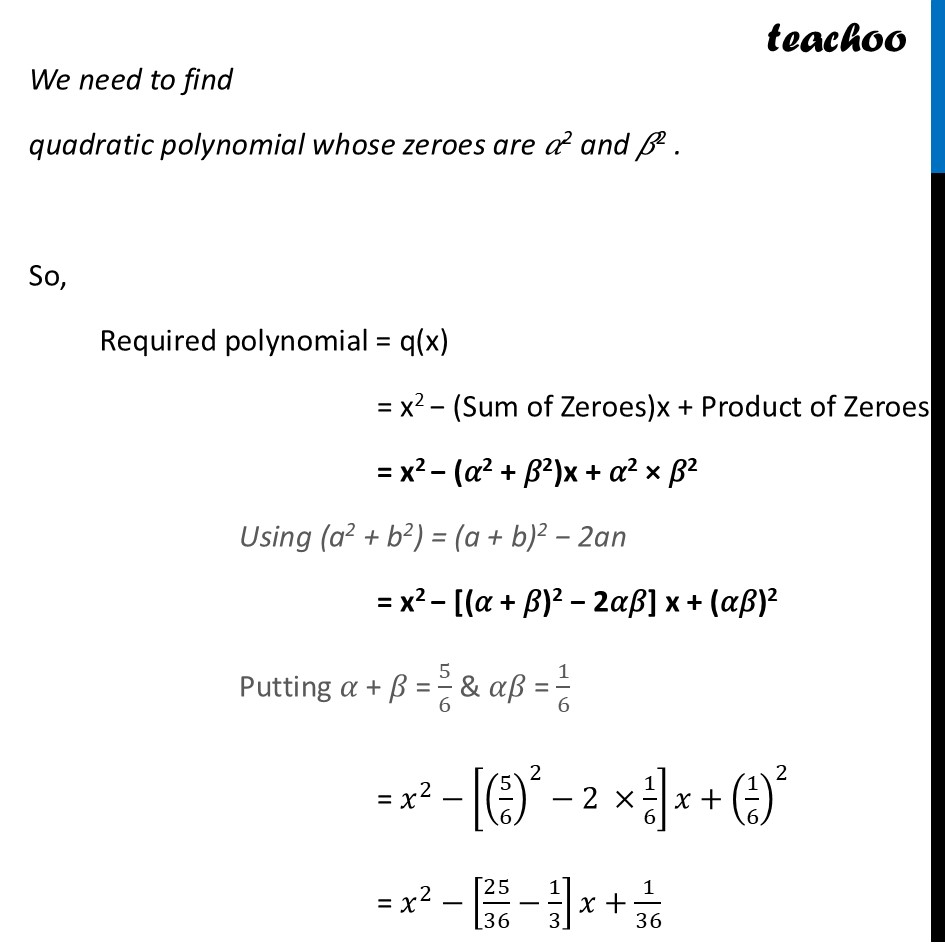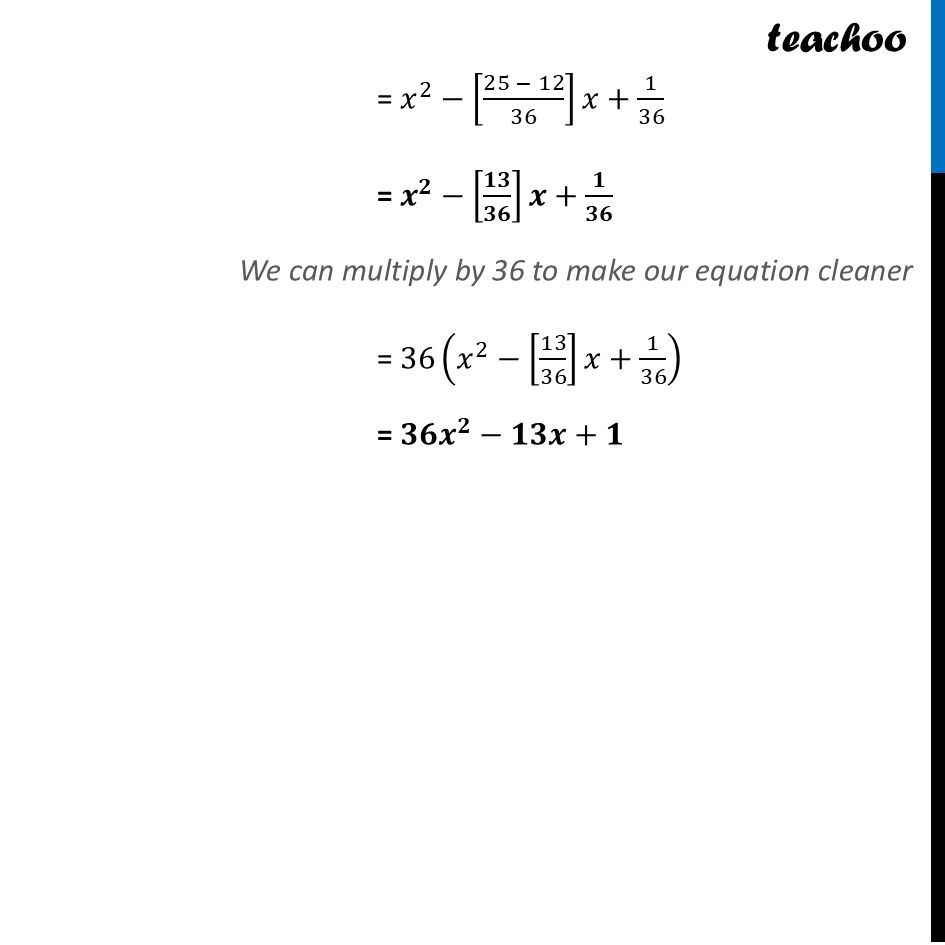


CBSE Class 10 Sample Paper for 2025 Boards - Maths Standard
CBSE Class 10 Sample Paper for 2025 Boards - Maths Standard
Last updated at February 12, 2025 by Teachoo



Transcript
Question 28 If 𝛼 and 𝛽 are zeroes of a polynomial 6𝑥2 − 5x + 1 then form a quadratic polynomial whose zeroes are 𝛼2 and 𝛽2 .Let p(x) = 6𝑥2 − 5x + 1 Roots of p(x) are 𝛼 and 𝛽 So, Sum of roots = 𝛼 + 𝛽 = (−(−5))/6 = 𝟓/𝟔 And, Product of roots = 𝛼𝛽 = 𝟏/𝟔 We need to find quadratic polynomial whose zeroes are 𝛼2 and 𝛽2 . So, Required polynomial = q(x) = x2 − (Sum of Zeroes)x + Product of Zeroes = x2 − (𝛼2 + 𝛽2)x + 𝛼2 × 𝛽2 Using (a2 + b2) = (a + b)2 − 2an = x2 − [(𝛼 + 𝛽)2 − 2𝛼𝛽] x + (𝛼𝛽)2 Putting 𝛼 + 𝛽 = 5/6 & 𝛼𝛽 = 1/6 = 𝑥^2−[(5/6)^2−2 ×1/6]𝑥+(1/6)^2 = 𝑥^2−[25/36−1/3]𝑥+1/36 = 𝑥^2−[(25 − 12)/36]𝑥+1/36 = 𝒙^𝟐−[𝟏𝟑/𝟑𝟔]𝒙+𝟏/𝟑𝟔 We can multiply by 36 to make our equation cleaner = 36(𝑥^2−[13/36]𝑥+1/36) = 𝟑𝟔𝒙^𝟐−𝟏𝟑𝒙+𝟏